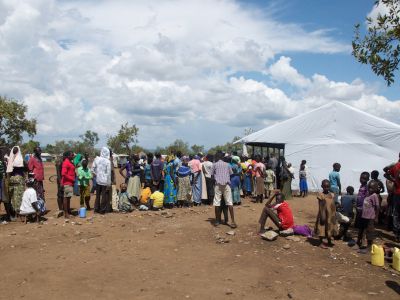Kenya. An innovation hotspot for social businesses
East Africa has emerged in recent years as the most dynamic region in Africa. Within the region, Kenya has traditionally been the economic powerhouse, and has maintained a strong growth performance.

East Africa has emerged in recent years as the most dynamic region in Africa. Within the region, Kenya has traditionally been the economic powerhouse, and has maintained a strong growth performance since the early 2000’s, growing at an average rate of almost 5 percent. This led to a fall in the poverty rate (using the national poverty line) from 46.8% in 2005 to 36.1% in 2015, although the absolute number of poor people has increased slightly.
Economic situation
Some of the key strengths of the Kenyan economy include:
-
A capable business class
-
A relatively skilled labour force
-
Good quality business infrastructure, at least when compared to most of its African peers.
Politics
Unfortunately, Kenyan politics have not always been as rosy as in the economy. Despite being formally a democracy, Kenyan elections have typically been marked by irregularities and, most markedly in 2007, political violence. Moreover, the country’s politics and public administration are widely seen as rife with corruption, even though constraints on the operation of the private sector are much less prevalent than in some of the neighbouring countries.
The recurrent bouts of turmoil that hit the country on election years are well-illustrated by the latest Kenyan presidential elections, held in August 2017, and the controversy that followed them up until the agreement between incumbent president Uhuru Kenyatta and challenger Raila Odinga.
Social Businesses
Unperturbed by these antics, the NGO and social business sectors continue to thrive. Kenya is regionally recognized as an innovation hotspot for social businesses, counting numerous examples of scaled business models and attracting some of the most innovative professionals from around the world.
 Photo by Seth Doyle
Photo by Seth Doyle-
The large pool of qualified staff
-
Strong global connections
-
The presence of many grant bodies.
Investors and social businesses can count on a highly-developed social business ecosystem, including:
-
Research institution
-
Business incubators, and other forms of capacity-building.
Moreover, there is a greater availability of finance than in other neighbouring, due to the high number of grant-awarding organizations and conventional banks’ slightly lower reluctance to lend to SMEs.
The country’s general orientation towards the private sector, and the government’s mostly ‘hands-off’ approach towards it, prevent the creation of unnecessary obstacles to the operation of private firms, NGOs, and social businesses. Nonetheless, there still is no specific law for the social business sector, as the new Public Benefits Organizations Act approved by the president in 2013 is yet to be implemented, mostly due to a lack of interest. Although in some quarters there exists the view that the Kenyan impact investing market is by now saturated, others see opportunities for further investment, particularly in rural areas.
Open Value Foundation es una fundación que cataliza soluciones innovadoras y sostenibles para mejorar la vida de las personas más vulnerables a través de proyectos y alianzas con un enfoque de Venture Philanthropy.
Open Value Foundation pertenece a Santa Comba Gestión SL, holding familiar aglutinador de proyectos que fomenta la libertad de la persona desde el conocimiento.
Paseo de la Castellana, 53, 2ª planta 28046 Madrid (España)
+34 91 077 06 08
© Copyright 2024. Open Value Foundation



